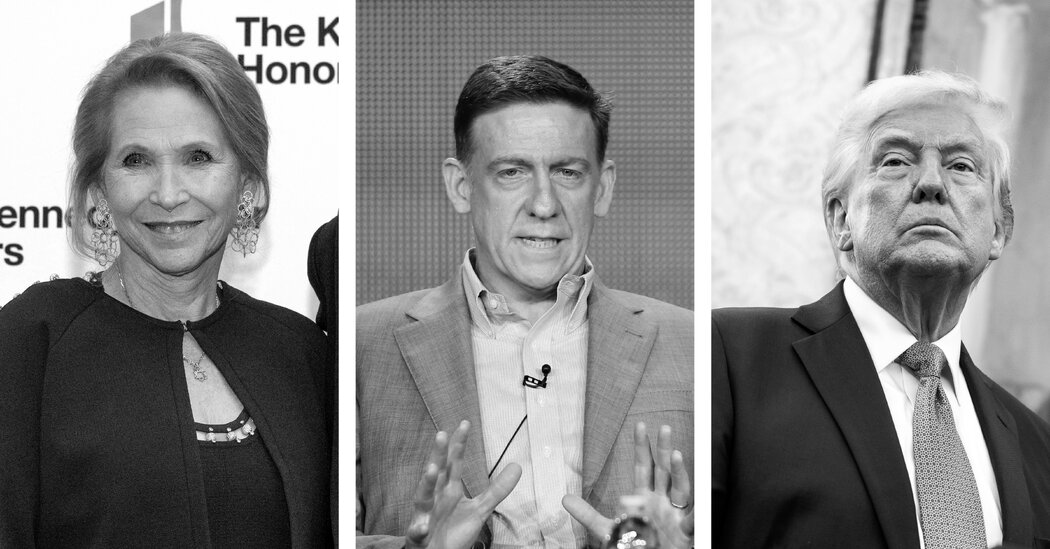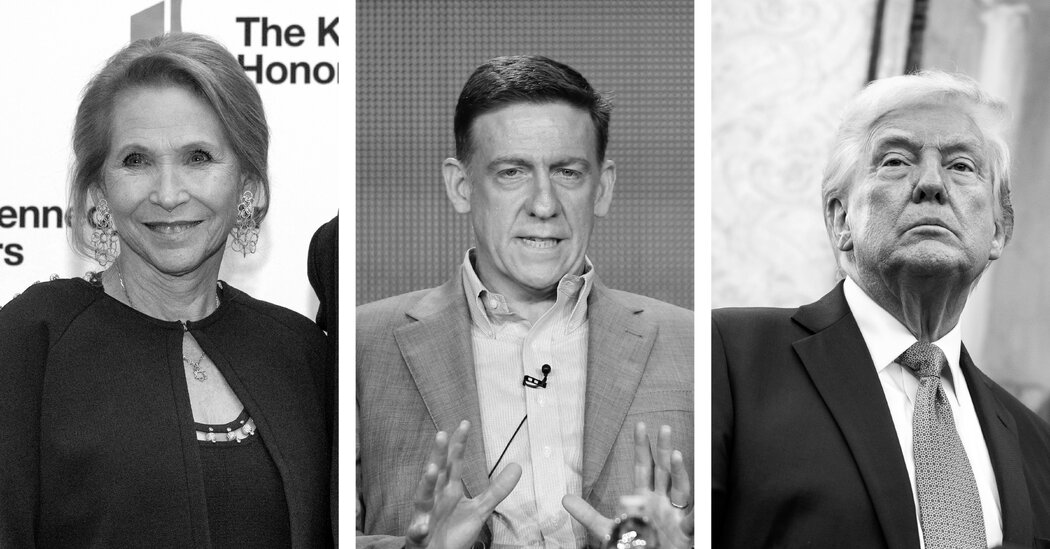## Trump vs. 60 Minutes: Will Big Media Finally Settle? The media world is holding its breath. After years of legal battles, a possible glimmer of resolution has emerged in the high-profile lawsuit between former President Donald Trump and CBS’s “60 Minutes.” A recent move by Paramount, the parent company of CBS, has sent shockwaves through the industry, raising key questions about the future of journalistic freedom and the power of media accountability. Will this be the end of the road for Trump’s legal crusade against the venerable news program? Read on to find out how this pivotal moment could reshape the landscape of media litigation.
Analysis and Implications

The recent development in the lawsuit between President Trump and Paramount, the parent company of CBS News, has sparked a flurry of questions about the potential settlement figures and the implications it may have on the company’s financial future.
The exact dollar amounts of the potential settlement remain unknown, but the Paramount board’s willingness to negotiate a deal has raised eyebrows. Legal experts believe that the lawsuit is baseless and an easy win for CBS, which begs the question: why is Paramount willing to settle?
One possible explanation lies in the pending sale of Paramount to Skydance, a Hollywood studio that requires sign-off from the Trump administration. Shari Redstone, the company’s controlling shareholder, is set to receive a major payday from the sale, and a settlement with the president may be seen as a way to smooth the path for the deal.
Implications for Paramount’s Future
A settlement in this lawsuit could have significant implications for Paramount’s future, particularly in light of the pending sale. If the deal with Skydance goes through, Paramount will be under new ownership, and the company’s strategy may shift as a result.
The sale of Paramount to Skydance is seen as a strategic move to expand the company’s reach in the entertainment industry. However, the connection to the Trump administration raises questions about the role of politics in shaping media narratives.
In the context of the lawsuit, a settlement could be seen as a way for Paramount to curry favor with the Trump administration, potentially influencing the outcome of the sale. This raises concerns about the independence of media outlets and the potential for political interference in the industry.
The Legal Landscape
Legal experts have been vocal in their criticism of the lawsuit, calling it baseless and an easy win for CBS. However, the Paramount board’s willingness to settle has raised questions about the legal precedents that may be set by this case.
If Paramount settles with the president, it could create a legal precedent that makes it easier for public figures to sue media outlets for perceived slights. This could have a chilling effect on free speech and the media’s ability to hold those in power accountable.
On the other hand, a settlement could also be seen as a way to avoid a lengthy and costly legal battle. This could be a strategic move by Paramount to minimize its losses and focus on its core business.
The Business of Entertainment
The lawsuit and potential settlement have far-reaching implications for the entertainment industry as a whole. The role of corporate interests and politics in shaping media narratives is an ongoing concern, and this case brings it to the forefront.
The entertainment industry is already heavily influenced by corporate interests, with many media outlets owned by large conglomerates. The potential sale of Paramount to Skydance highlights the ongoing trend of consolidation in the industry.
A settlement in this lawsuit could further entrench the influence of corporate interests and politics in the media landscape. This raises concerns about the diversity of voices and perspectives in the industry, and the potential for independent media outlets to be squeezed out.
Conclusion
Conclusion: A New Chapter for Trump’s ’60 Minutes’ Lawsuit?
The recent development at the Paramount Board has opened a possible pathway for resolving the long-standing lawsuit between Donald Trump and CBS News’ ’60 Minutes’ program. Key points from the article reveal that the board has signaled its readiness to consider a settlement proposal from the Trump Organization. This comes after a year-long battle, where Trump had accused the program of orchestrating a “sensational” interview, leading to a defamation lawsuit. The article highlights the reluctance of the board to intervene, but the growing pressure from both sides has apparently led to a more favorable stance.
The significance of this development cannot be overstated. If a settlement is reached, it would mark a significant shift in the highly polarized media landscape. The Trump Organization’s lawsuit had sparked concerns about the limits of free speech and press freedom, with many arguing that it set a dangerous precedent for future media criticism. A settlement would help alleviate these concerns and potentially pave the way for more constructive dialogue between media outlets and public figures. Moreover, the outcome of this lawsuit will have far-reaching implications for the future of media and journalism, setting a precedent for how the industry navigates allegations of defamation.
As we look to the future, one thing is clear: the consequences of this lawsuit will be felt for years to come. Whether a settlement is reached or not, the case has already had a profound impact on the media landscape. The Trump Organization’s lawsuit has forced media outlets to re-examine their approach to reporting on public figures, and the outcome of this case will shape the industry’s response to future allegations of defamation. As we move forward, one thing is certain: the lines between journalism and politics will continue to blur, and the role of media in holding public figures accountable will remain a contentious issue. The question now is: will we emerge from this controversy with a stronger, more resilient media, or will we succumb to the pressure of a polarized world? The answer lies in the outcome of this lawsuit, and the future of journalism hangs in the balance.
